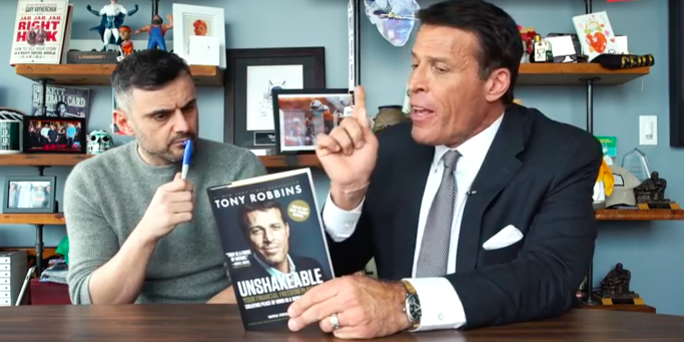
Since man could talk, he’s been searching for ever-more creative ways to sell stuff that doesn’t work and, even if it did, nobody needs in the first place. Every generation has its own version of swindlers with their bill of goods for sale.
The 1800s had snake oil salesmen. The 20th century ushered in the self-help era, courtesy of Dale Carnegie’s “How to Win Friends and Influence People,” Napoleon Hill’s “Think and Grow Rich” and Norman Vincent Peale’s “The Power of Positive Thinking.”
That led to the vitamins and supplements trade, late night infomercials featuring Veg-O-Matics and Ginsu Knives, ubiquitous fad diets, Bowflex and the 14-minute workout, ShamWow (sham indeed), Suzanne Somers’ unforgettable Thigh-Master, Tim Ferris’s “4-Hour Workweek,” and Mr. You-Can-Do-Anything himself, Tony Robbins.
Make no mistake, they’re all the same. The only thing that changes is the medium.
TV pitchmen continue to thrive in our quick fix culture. There are always plenty of suckers for miracle cures and remedies. And once the FCC deregulated cable in the 80s, that opened the floodgates for direct-response advertising, which, as of 2009, was a $300 billion industry. God knows how much it’s grown since.
What really leveled the playing field for any talent-free shyster to create a personal brand that claims to enrich others while only enriching himself is Web 2.0: social media and user-generated content. Just as it did for fake news, this medium gave rise to a new breed of “fake it ‘til you make it” hustlers known as gurus.
Consider self-branded internet sensations like Tai Lopez and Gary Vaynerchuk, who says that becoming a digital marketing guru cost a fraction of what his dad had to spend in advertising to put his local wine shops on the map, back in the day. Now he dispenses advice to a million followers who want to be just like him.
Self-perpetuation is a common theme among self-help hustlers. You hear the familiar refrain “I did it, so can you” over and over in their books, blog posts and seminars. Meanwhile, nobody has ever successfully demonstrated any significant ROI from content marketing … or from following self-help advice, for that matter.
Still, the internet is full of digital clones who believe what they want to believe, including whatever inspirational fluff they read online. I guess it gives them hope, and something to do.
So if you have nothing else going for you, you too can be an online sensation like Lopez, Vaynerchuk or Kim Kardashian. All you’ve got to do is sell yourself and your soul on reality TV, YouTube, Facebook and Instagram to make megabucks off the hopes, dreams and gullibility of fools. Just make sure to leave your morals and self-respect at home.
Image credit: Screen shot of Tony Robbins on Gary Vaynerchuk’s YouTube channel